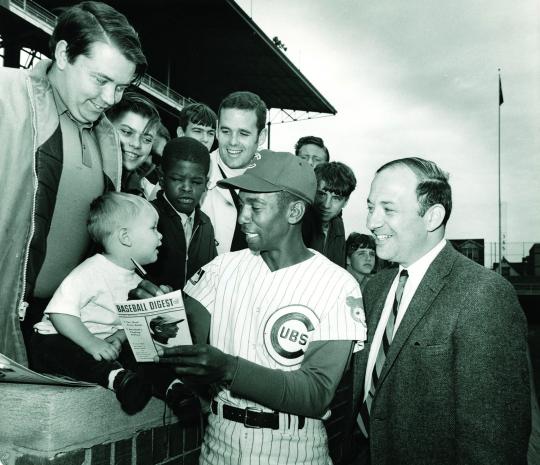- Home
- Our Stories
- Banks transitioned seamlessly from Negro League to Cubs
Banks transitioned seamlessly from Negro League to Cubs
September of 1953 was a whirlwind for 22-year-old Ernie Banks. On the seventh of the month, the Chicago Cubs purchased Banks’ contract from the Negro League’s Kansas City Monarchs, intent on making him their first Black player. Banks signed for $2,000 the next day. Then, on Sept. 17, the Dallas native made his National League debut.
Cubs Gear
Represent the all-time greats and know your purchase plays a part in preserving baseball history.
Hall of Fame Membership
There is no simpler, and more essential, way to demonstrate your support than to sign on as a Museum Member.
While the debut was unremarkable – he went 0-for-3 with a walk – Banks wouldn’t wait long to flash his Hall of Fame potential. In Banks’ third game, a Sept. 20 contest in St. Louis, the shortstop went 3-for-4 with a triple, his first career home run and three RBI off right-hander Gerry Staley. The Cardinals won 11-6, but Banks’ performance was a promising sign for the 62-85 Cubs.
“Ernie Banks, one of several rookies who will challenge Roy Smalley next year for his shaky shortstop job, knocked his first major league homer,” wrote the Chicago Tribune.
Banks hit .314 with two home runs and 10 RBI in 10 games that September.
In just 77 games at shortstop in 1953, Smalley committed 25 errors – tied for second-most in baseball – and had “been made a whipping boy by Wrigley Field fans because of his erratic throwing,” according to the Tribune. He hadn’t offered much at the plate, either, posting a .299 on-base percentage in six seasons with the Cubs.
Cubs’ personnel director Wid Matthews declined to move on from Smalley, but he was committed to Banks as the team’s shortstop of the future.
“Ernie Banks, who has played only 10 National league games, would bring $100,000 in the baseball market,” Matthews told the Tribune in February of 1954. “I could get on the phone right now and deal him for that figure. Of course, by May 1 he might not be worth nearly that much – but we wouldn’t take $200,000 for him now. That’s what we think of his future.”
Banks started every game at shortstop in 1954 and, with a .275 average, 19 home runs and 79 RBI, finished second behind Wally Moon in the Rookie of the Year race. Banks was then named an All-Star for eight consecutive years beginning in 1955, a stretch during which he won back-to-back National League MVP awards – in 1958-59 – and averaged 39 home runs per season.
A prolific defensive shortstop in his 20s, Banks played some outfield in 1961 then became a full-time first baseman starting in 1962. The man nicknamed “Mr. Cub” spent his entire 19-year career with the Cubs while remaining a formidable offensive threat throughout. Cemented into Chicago’s lineup for nearly two decades, Banks accumulated 512 home runs, 1,636 RBI and 2,583 hits. He remains one of just two shortstops in the 500-home run club.
Banks was inducted into the Hall of Fame in 1977.
Justin Alpert was the 2023 social media intern in the Hall of Fame’s Frank and Peggy Steele Internship Program for Youth Leadership Development
Related Stories
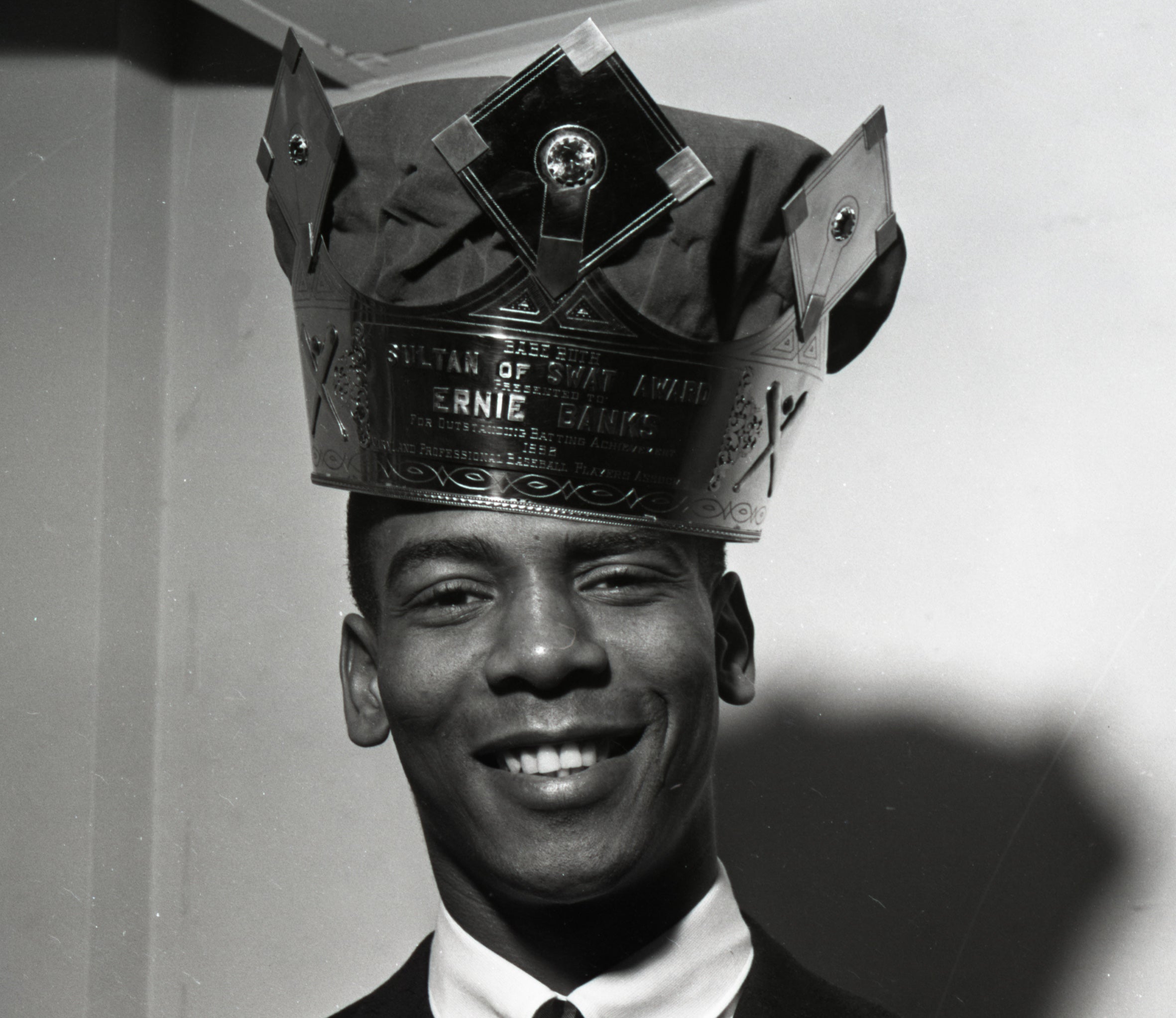
Ernie Banks wins second straight NL MVP award
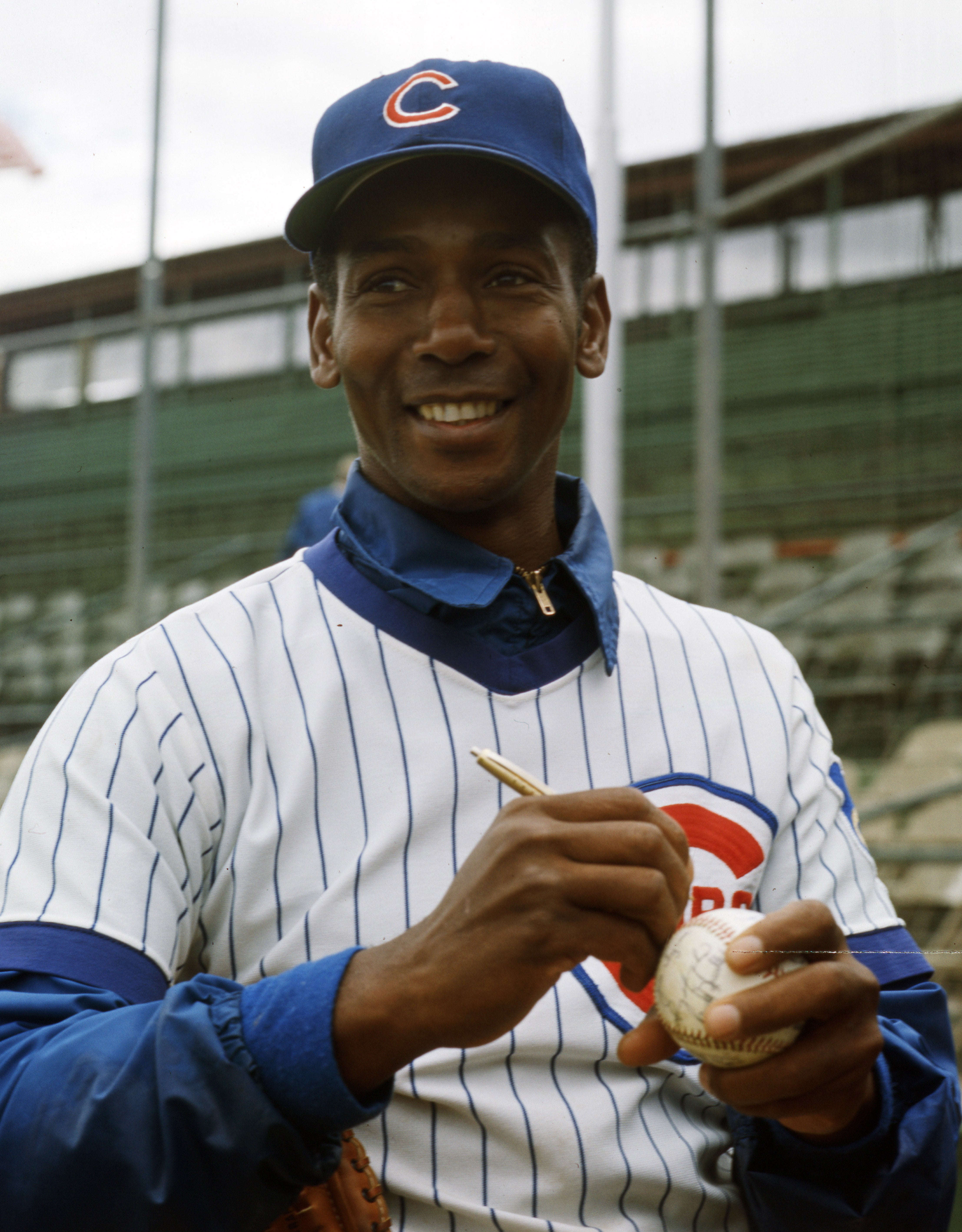
Between shortstop and first base, Banks tried the outfield
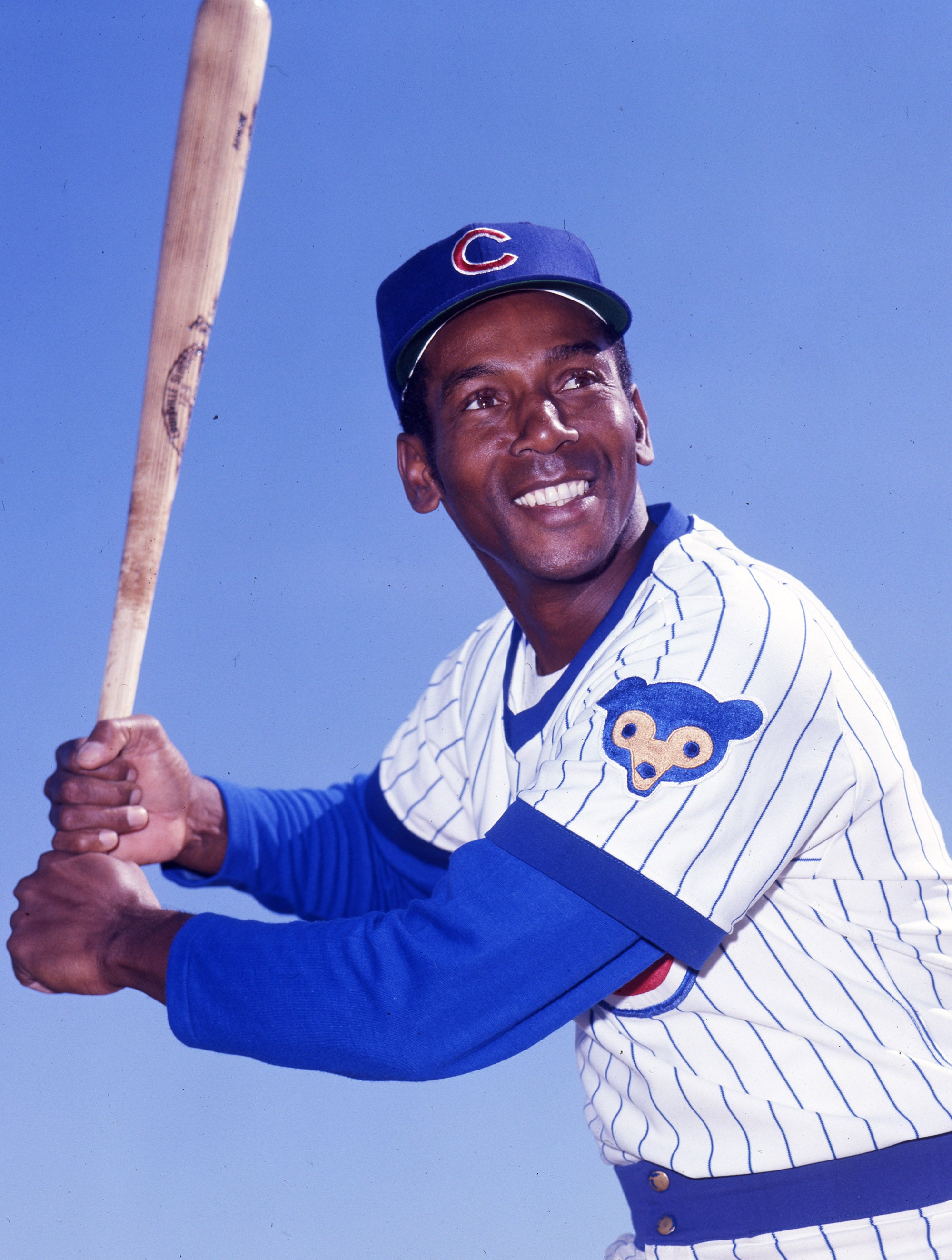
Banks’ 500th home run puts him in rare company
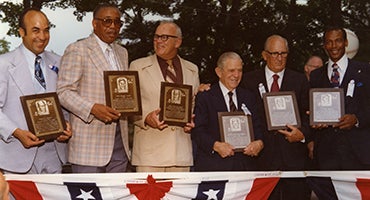
Banks set tone for Class of 1977 in Cooperstown
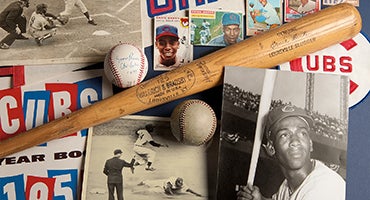
Farewell, Mr. Cub
Related Stories

Ernie Banks wins second straight NL MVP award

Between shortstop and first base, Banks tried the outfield

Banks’ 500th home run puts him in rare company

Banks set tone for Class of 1977 in Cooperstown

Farewell, Mr. Cub
Related Stories

#CardCorner: 1972 Topps Jose Pagan
1960 Hall of Fame Game

Great Call: Remembering Frick Award winner Milo Hamilton

With deliberate speed, the 1950s saw the reintegration of the white major leagues

O’Neil’s work as a scout opened doors for many players

1971 Hall of Fame Game

#CardCorner: 1976 Topps Oscar Gamble

Play It Again: The Two All-Star Game Era


